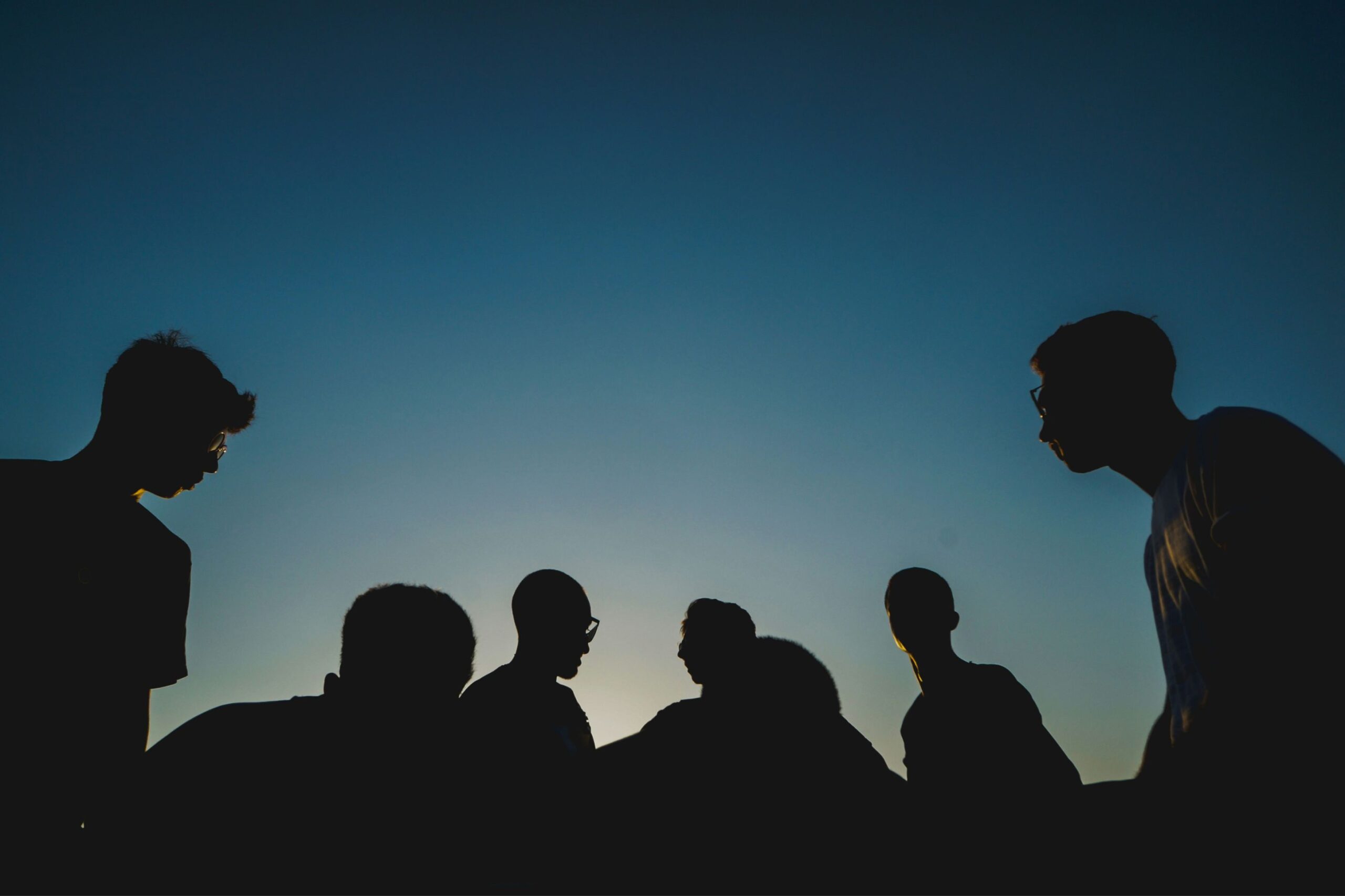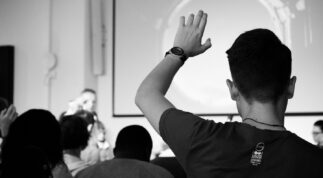“There’s so many men who live lives of quiet desperation,” says Jackson Katz. “There’s so many young men, for example, who have loneliness and mental health challenges. And this has to become part of a broader conversation here in Australia, and in the States. But feminist ideas are the solution, not the cause of their problems.”
Jackson is seated across from Mary Crooks AO, Executive Director of the Victorian Women’s Trust, speaking passionately about sexism and misogyny. Also in the room are two camera operators, other staff and a whole host of video equipment — lights, cameras, the works — as this conversation is to be recorded and released late June, 2024.
This is far from Mary and Jackon’s first meeting. He first came in contact with the Victorian Women’s Trust in 2012, when the Trust held a hugely successful tour with the speaker, writer and violence prevention campaigner, in partnership with Melbourne Storm.
Known for his pioneering work on the bystander effect, Jackson Katz is a globally renowned expert on violence, specifically for his work on how to engage men in prevention. His book, The Macho Paradox: Why Some Men Hurt Women and How All Men Can Help, first published in 2006 and reissued in 2019, centred men in the issue of violence, both as perpetrators and advocates for change.
Jackson’s visit to the Victorian Women’s Trust is timely, given the extreme incidents of gendered violence splashed across headlines in recent months: the Bondi Junction attack for example, and the chilling fact that one woman is being killed by a man every four days in Australia (resulting in a 30% increase this year alone), leading the federal government to declare violence against women a national emergency.
But back to the conversation between Mary and Jackson.
“Do you see a preoccupation with the tip of the iceberg, with manifest acts of violence,” asks Mary, “when there’s actually a strong social, dirty secret around men’s violence?”
It’s a crucial point. While horrifying accounts of men’s violence occupy the daily headlines, covert and hidden examples of domestic abuse continue behind closed doors every day.
Jackson is unequivocal in his response. “I totally agree with your premise,” he says. “Domestic homicides get a lot of media attention and it sometimes can distort the picture.”
“But the lower level stuff, the everyday, the norm, if you will — of sexual violence, of domestic abuse, of cat calls on the street, sexual harassment in the workplace — this stuff is ongoing,” says Jackson. “And I think some people are frankly comforted about thinking about the extreme cases.”
“A lot of people can then dissociate themselves from that and say, ‘that guy was crazy’,” Jackson explains. “A lot of men can say, ‘well, I would never do anything close to that. That’s just so off the charts of what anything that I would ever do. I’m a good guy’.”
“I think that the monster discourse plays a very powerful role in preventing introspection on the part of the dominant culture and the average bloke.”
Mary agrees. “I love that idea about a lack of introspection,” says Mary. “If I look back just over this year alone, we’ve had a report showing that our Border Force Operations are not safe for women to work at, and research shows that one of the most unsafe places for women to work in this country are in medical surgeries.”
“We’ve seen reports of school boys, at private schools, and public schools, rating their female peers on, you know, whether they’re ‘cuties’ or ‘wifey’ or ‘unrapeable’,” says Mary. “These are constant reminders that there’s a deep seam of beliefs and attitudes where women don’t belong as peers in those worlds where women are still objects being demeaned or when men set the terms of engagement.”
“We’re not looking at the bedrock, we’re not looking at the belief systems.”
So how do we challenge these deep seated beliefs that sustain violence towards women and gender diverse people? Jackson says men have to be part of the solution.
“I do think we have to create better stories for men and young men about how they can be involved in the process moving forward,” Jackson observes. “In the absence of a positive story, frankly, the political right and the Andrew Tates and the Jordan Petersons of the world have open arms for a lot of the young men.”
“You know, I think we want men to be strong. The question is, how do you define strength?” asks Jackson. “Strength is about moral courage. It’s about social courage. It’s about speaking up in the face of injustice. I think it’s important to give men and young men a positive way to be strong in support of fairness and equity and justice.”
It’s a sobering thought, but not entirely without hope. As this long standing friendship between advocates from opposite sides of the globe attests, the fight for equality and justice is ongoing, we just need the moral courage to see our world differently.
The full recording of Mary and Jackson’s conversation will be available in late June. To receive updates about the release, make sure you are signed up to the Victorian Women’s Trust mailing list.
Thank you to Jackson Katz and Communicare for making this visit possible.
 Ally Oliver-Perham
Ally Oliver-Perham
When she’s not managing communications at VWT, you will find Ally cheerfully bouncing on her toddler’s trampoline (with or without said toddler) or sneaking in few pages of a book. With a passion for gender equality, Ally’s interested in meaningful ways we can work together for social good.



